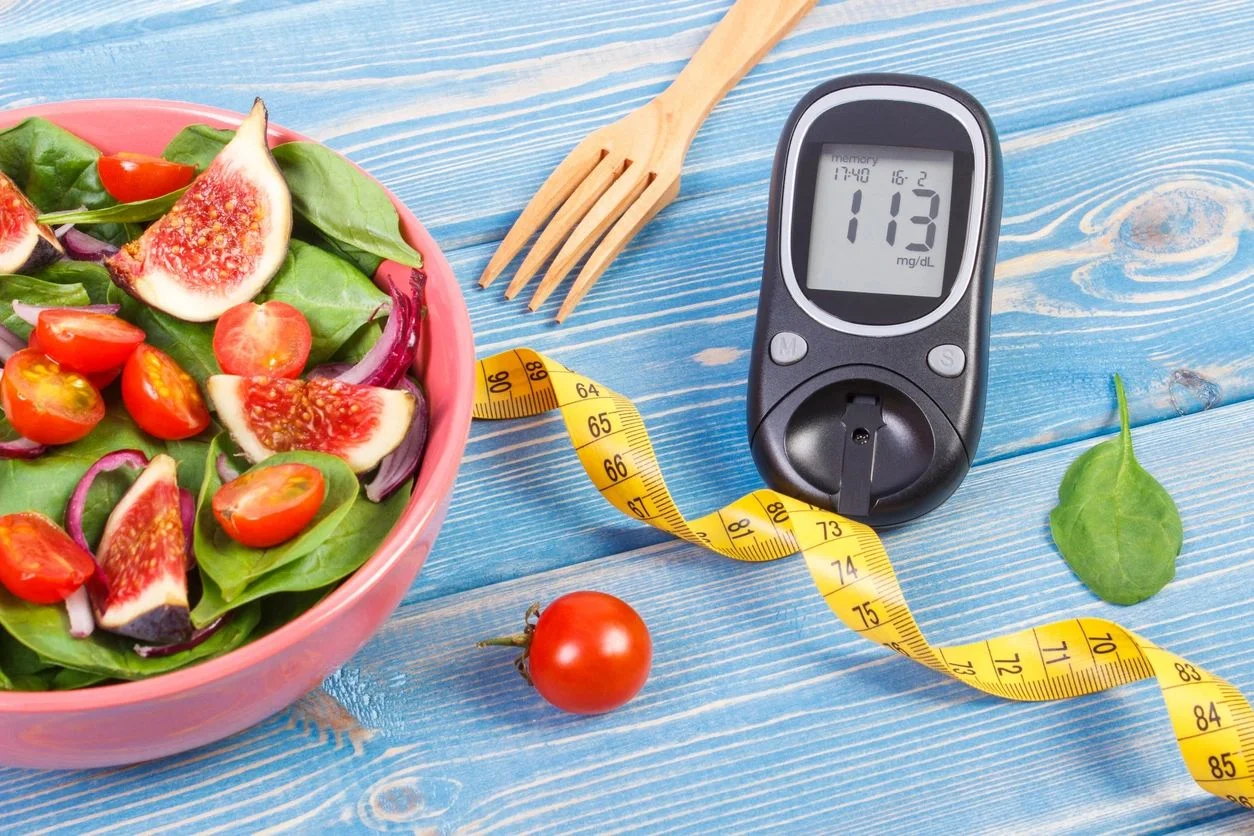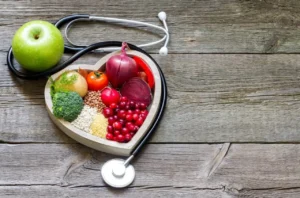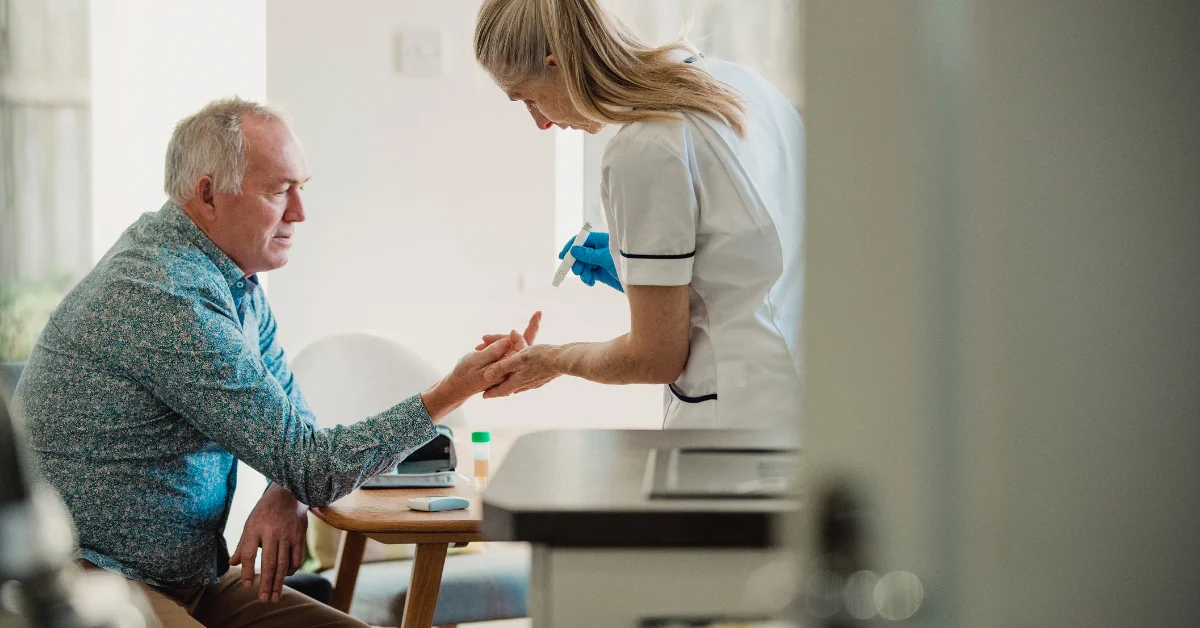Prediabetes is a medical condition where an individual has high blood sugar
levels, but they are not high enough to be diagnosed with type 2 diabetes yet. More
than 1 in 3 Americans have prediabetes, which amounts to about 96 million people.
Of these people, 80% do not know they have prediabetes. According to the
American Diabetes Association, 70% of individuals with prediabetes will develop
type 2 diabetes in their lifetime. These statistics emphasize how common
prediabetes is among the population. Yet, there are still many misconceptions people
have about prediabetes that are perpetuated by the media and other information
outlets.
Misconception #1 – Having prediabetes means you will get type 2 diabetes
While there is a high likelihood of developing type 2 diabetes when you have
prediabetes, this is not guaranteed! Lifestyle changes such as exercise and eating a
healthy diet can reduce the risk of developing type 2 diabetes by about 40%.
Medications also reduce the risk of developing diabetes. Lifestyle changes, however,
have a longer-lasting impact lowering the risk for 7 years post-intervention and are
more likely to reduce the risk of having type 2 diabetes than medications alone.
Misconception #2 – Only older people need to worry about prediabetes
Prediabetes is becoming more common among younger people. For example,
1 in 5 adolescents (12-18 years old) and 1 in 4 young adults (19-34 years old) have
prediabetes. Unfortunately, young people are spending more time being sedentary
and using technology which increases the health risks of diabetes as well as other
chronic diseases. There is also widespread access to processed foods high in
simple sugars and animal fats, leading to weight gain and poorer health. These risks
may be decreased if young people choose healthier food options and invest time in
daily exercise.
Misconception #3 – People with prediabetes shouldn’t eat carbohydrates
Not all carbs are bad! Carbohydrates are macronutrients (in addition to protein
and fat), so we need them in our diet. The quality, not the quantity of a carbohydrate
is more important. For example, foods with a lower glycaemic load (GL), such as
fibre and whole grains are healthier carbohydrate options that people with
prediabetes should eat. In contrast, people with prediabetes should avoid refined
carbohydrates such as white bread because they are “empty calories” and cause
your blood sugar levels to spike.
Misconception #4 – If it doesn’t have carbohydrates, it doesn’t affect your
blood sugars
Maybe fat and protein do not directly impact your blood sugar levels like
carbs, but what you eat matters! Healthy fats and protein can prevent glucose
spikes, whereas unhealthy fats (fried foods, fatty red meat) can increase the risk. In
addition, too much fat in your diet can cause insulin resistance, which could cause
prolonged high glucose levels.
Misconception #5 – People who are overweight are more likely to get
prediabetes
There is stigma against people who are overweight and have diabetes. Thin
people, however, can get diabetes too! For example, people who appear thinner
could have lots of visceral fat surrounding their organs that are less visible but
makes them just as susceptible to diabetes. Other factors make an individual at risk
of developing diabetes, such as diet, heredity, a sedentary lifestyle, stress, fatty liver
disease, and more. There is also the belief that you have to lose a lot of weight to
lower your risk of getting diabetes. However, you only need to lose a small amount of
weight (5-7% of total body weight) and get regular exercise to lower your risk of
developing type 2 diabetes.
Misconception #6 – If you don’t have symptoms you don’t have prediabetes
Prediabetes is often asymptomatic, so it can sometimes be difficult to
determine whether you are experiencing this condition or not. Symptoms of
prediabetes usually only occur after type 2 diabetes has developed. To understand
whether you have prediabetes, you need to get a blood test from your healthcare
provider.
Misconception #7 – You get diabetes from eating too much sugar
While sugar can trigger diabetes, it is not a direct cause. The main causes of
type 2 diabetes are usually insulin resistance or a failing pancreas. Sugar does
cause insulin resistance, inflammation, and weight gain – but does not directly cause
diabetes. The resulting symptoms from sugar could lead to developing prediabetes
and eventually diabetes.
Misconception #8 – People with prediabetes who get type 2 diabetes will have
it the rest of their life
Just because you have type 2 diabetes does not mean you will have it for the
rest of your life. There are cases of people going into remission with type 2 diabetes!
Type 2 diabetes symptoms can be reduced or eliminated through lifestyle factors
such as exercise and a healthy diet. Unfortunately, type 1 diabetes is not yet curable.
Conclusion
There are many misconceptions surrounding prediabetes, and The Diabetes
App is passionate about creating more awareness about these myths. We want to
educate you on diabetes and reduce the stigma toward this disease. We encourage
you to keep educating yourself on diabetes to live a more healthy, happy, and
fulfilling life!
Resources:
https://www.cdc.gov/diabetes/basics/prediabetes.html#:~:text=What%20Is%20Predia
betes%3F,t%20know%20they%20have%20it.
https://www.cdc.gov/diabetes/prevent-type-2/index.html
https://www.ncbi.nlm.nih.gov/pmc/articles/PMC3891203/#:~:text=According%20to%2
0an%20ADA%20expert,prediabetes%20will%20eventually%20develop%20diabetes.
https://evidence.nihr.ac.uk/alert/diet-and-exercise-programmes-can-prevent-diabetes
-in-high-risk-individuals/
https://www.cdc.gov/media/releases/2019/p1202-diabetes.html
https://www.webmd.com/children/news/20191202/prediabetes-now-common-among-teens-young-adults
https://www.diabetes.org.uk/guide-to-diabetes/enjoy-food/carbohydrates-and-diabetes
https://www.healthline.com/nutrition/why-refined-carbs-are-bad
https://www.joslin.org/patient-care/diabetes-education/diabetes-learning-center/carbs
-protein-and-fats-their-effect
https://www.geisinger.org/health-and-wellness/wellness-articles/2018/03/05/21/59/ye
s-thin-people-can-get-type-2-diabetes
https://my.clevelandclinic.org/health/diseases/21498-prediabetes#:~:text=Prediabete
s%20doesn’t%20always%20have,and%20prevent%20Type%202%20diabetes.
https://www.hackensackmeridianhealth.org/en/HealthU/2021/12/14/Can-You-Get-Dia
betes-from-Eating-Too-Much-Sugar#.YvPHVuzMLRO
https://www.consumerreports.org/cro/2013/01/10-diabetes-myths/index.htm









